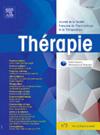生物药理学网络确保尼马瑞韦/利托那韦的药物相互作用风险
IF 1.8
4区 医学
Q3 PHARMACOLOGY & PHARMACY
引用次数: 0
摘要
Nirmatrelvir/ritonavir是一种蛋白酶抑制剂抗病毒药物,适用于治疗严重疾病高危患者的严重急性呼吸综合征冠状病毒-2感染。不幸的是,利托那韦用于提高尼马特利韦的药代动力学,也可以抑制或诱导其他共给药底物的代谢。这可能导致随后的药物不良反应和缺乏疗效的风险。在本研究中,我们旨在描述SFPT生物药理学网络(即在法国/比利时药理学部门实验室工作的治疗药物监测专家)提供的专家意见。从2022年2月到8月,我们收集了SFPT生物药理学网络提供的所有专业意见。七个药理学部门积极参与研究(在比利时布鲁塞尔Saint-Luc医院,卡昂,第戎,南特,南希,雷恩和在法国图卢兹)。我们收集了以下数据:患者的年龄,尼马特利韦/利托那韦起始日期,需要专家建议的临床科室,患者的治疗方法和提供的建议。在7个月的数据收集期间,就753种药物提供了106条专家建议。两个中心提供了83%的专家建议(约8个/月)。65%的患者来自移植科。最常见的是心脏药物(28%)、免疫抑制药物(24%)和内分泌药物(18%)。建议分布如下:分别有59%、28%、11%和1.6%的病例继续治疗、抗病毒过程中停止治疗、调整剂量和切换治疗。仅有2条建议(0.3%)构成治疗禁忌证。建议对10%的处方线进行药物监测。SFPT生物药理学网络提供的专家建议允许确保nirmatrelvir/ritonavir与其他伴随药物的组合。尽管存在药物相互作用的风险,但大多数符合条件的抗病毒药物患者可以从中受益。本文章由计算机程序翻译,如有差异,请以英文原文为准。
A biological pharmacology network to secure the risk of drug–drug interaction with nirmatrelvir/ritonavir
Nirmatrelvir/ritonavir is a protease inhibitor antiviral drug indicated in the treatment of severe acute respiratory syndrome coronavirus-2 infections in high-risk patients for a severe disease. Unfortunately, ritonavir, used to boost nirmatrelvir pharmacokinetics, can also inhibit or induce the metabolism of other co-administered drugs substrates. This may lead to a subsequent risk of adverse drug reaction and lack of efficacy. In this study, we aimed at describing the expert advices provided by the biological pharmacology network of the SFPT (i.e., the therapeutic drug monitoring specialists working in the laboratories of the pharmacology departments in France/Belgium). From February to August 2022, we collected all specialized advices provided by the biological pharmacology network of the SFPT. Seven pharmacology departments actively participated in the study (Brussels Saint-Luc Hospital in Belgium, Caen, Dijon, Nantes, Nancy, Rennes and Toulouse in France). We collected the following data: patient's age, date of nirmatrelvir/ritonavir initiation, clinical department requiring the expert advice, patient's treatments, and advice provided. One hundred and six expert advice on 753 drugs were provided during the seven months of data collection. Two centers provided 83% of all the expert advice (around 8/month). Patients originated form a transplantation department in 65% of the cases. The most common request were for cardiac drugs (28%), immunosuppressive drugs (24%) and endocrine drugs (18%). The advice were distributed as follows: treatment continuation, treatment discontinuation during the antiviral course, dosage adjustment, and treatment switch in 59%, 28%, 11%, and 1.6% of the cases, respectively. Only 2 pieces of advice (0.3%) constituted treatment contra-indications. Drug monitoring was proposed in 10% of prescription lines. Expert advice provided by the biological pharmacology network of the SFPT allows securing the combination of nirmatrelvir/ritonavir with other concomitant drugs. Most of eligible patients to the antiviral drug can benefit from it despite the risk of drug–drug interaction.
求助全文
通过发布文献求助,成功后即可免费获取论文全文。
去求助
来源期刊

Therapie
医学-药学
CiteScore
3.50
自引率
7.70%
发文量
132
审稿时长
57 days
期刊介绍:
Thérapie is a peer-reviewed journal devoted to Clinical Pharmacology, Therapeutics, Pharmacokinetics, Pharmacovigilance, Addictovigilance, Social Pharmacology, Pharmacoepidemiology, Pharmacoeconomics and Evidence-Based-Medicine. Thérapie publishes in French or in English original articles, general reviews, letters to the editor reporting original findings, correspondence relating to articles or letters published in the Journal, short articles, editorials on up-to-date topics, Pharmacovigilance or Addictovigilance reports that follow the French "guidelines" concerning good practice in pharmacovigilance publications. The journal also publishes thematic issues on topical subject.
The journal is indexed in the main international data bases and notably in: Biosis Previews/Biological Abstracts, Embase/Excerpta Medica, Medline/Index Medicus, Science Citation Index.
 求助内容:
求助内容: 应助结果提醒方式:
应助结果提醒方式:


